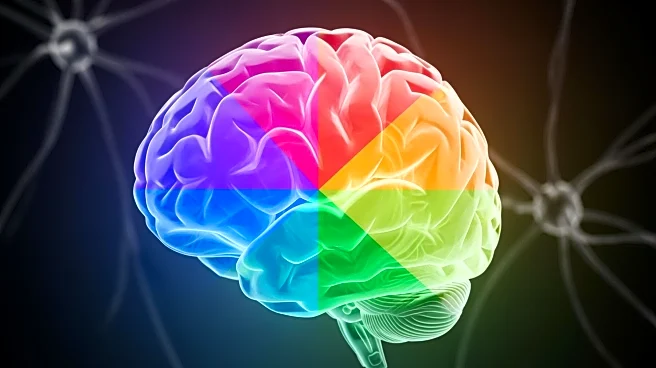What's Happening?
Recent research conducted by neuroscientists at the University of Cambridge has identified significant changes in brain structure occurring at four key ages: 9, 32, 66, and 83. The study, published in Nature
Communications, analyzed brain scans from over 3,800 individuals up to 90 years old, revealing five distinct phases of brain development. These phases include childhood topology, adolescence, adult mode, early aging, and late aging. The research highlights how the brain rewires itself to support different cognitive functions as individuals mature. The findings suggest that these turning points in brain structure could provide insights into learning difficulties in childhood and dementia in later years. The study emphasizes the importance of understanding these phases to better address neurological vulnerabilities at different life stages.
Why It's Important?
The study's findings are crucial for understanding the brain's development and its implications for neurological health. By identifying specific ages where major changes occur, researchers can better target interventions for conditions like learning disabilities and dementia. This knowledge could lead to improved strategies for preventing and treating neurological disorders, ultimately enhancing brain health across the lifespan. The research also underscores the importance of focusing on brain health during critical periods of development, potentially leading to breakthroughs in neuroscience and public health policies aimed at reducing the burden of neurological diseases.
What's Next?
Future research may focus on exploring the mechanisms behind these brain changes and their impact on cognitive functions. Scientists could investigate how environmental factors, lifestyle choices, and genetic predispositions influence these turning points. Additionally, the study may prompt further exploration into personalized medicine approaches for neurological disorders, tailoring treatments based on an individual's brain development stage. Policymakers and healthcare providers might consider these findings to improve early detection and intervention strategies for neurological conditions.
Beyond the Headlines
The study opens up discussions on the ethical implications of brain research, particularly concerning privacy and consent in neurological studies. It also raises questions about the cultural perceptions of aging and cognitive decline, potentially shifting societal attitudes towards older adults. Long-term, this research could influence educational systems to better accommodate learning differences and promote cognitive health from an early age.










